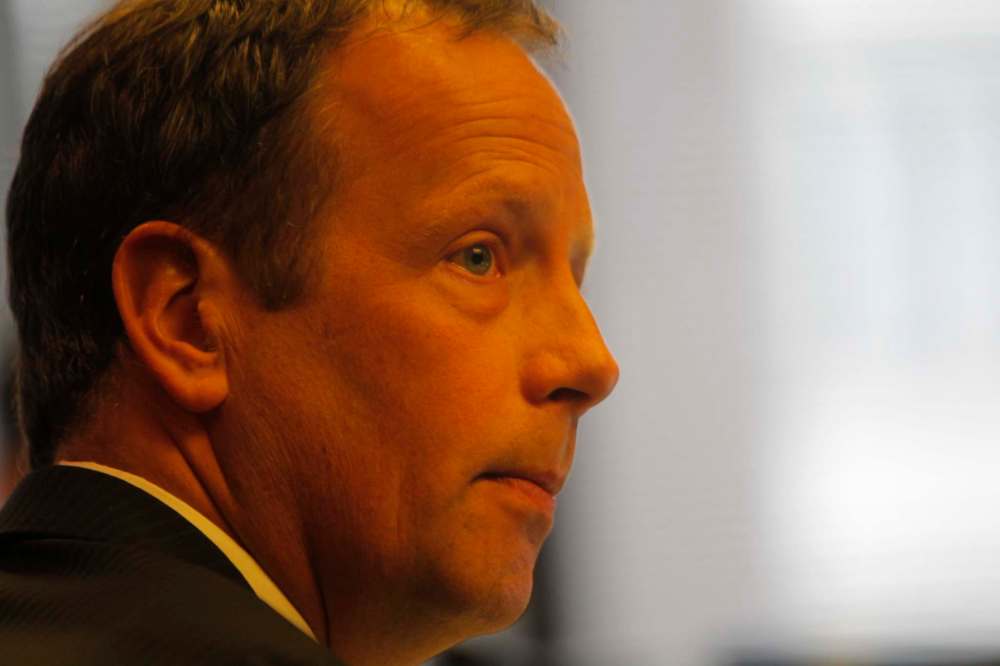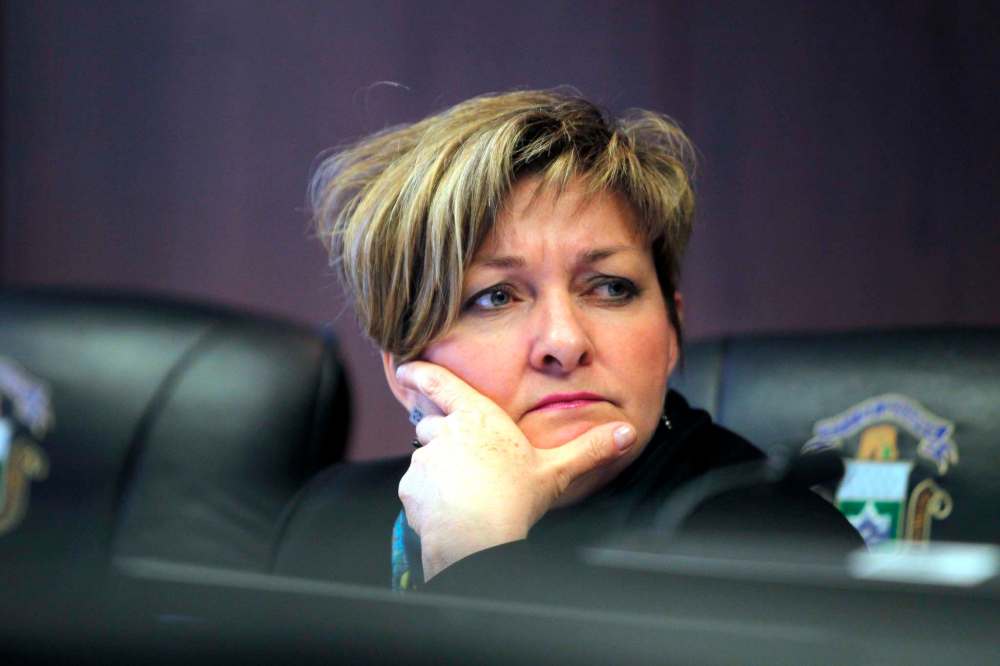Development fees highly unlikely by year’s end: councillors
Advertisement
Read this article for free:
or
Already have an account? Log in here »
To continue reading, please subscribe:
Monthly Digital Subscription
$1 per week for 24 weeks*
- Enjoy unlimited reading on winnipegfreepress.com
- Read the E-Edition, our digital replica newspaper
- Access News Break, our award-winning app
- Play interactive puzzles
*Billed as $4 plus GST every four weeks. Offer only available to new and qualified returning subscribers. Cancel any time.
Read unlimited articles for free today:
or
Already have an account? Log in here »
Hey there, time traveller!
This article was published 23/09/2016 (3052 days ago), so information in it may no longer be current.
Councillors emerged from a two-hour, closed-door meeting Friday to say it’s extremely unlikely that Winnipeg will have a new development fee in place by Jan. 1.
While there were no formal decisions taken Friday afternoon, councillors said the city won’t be ready to impose a new fee plan by Jan. 1 but they remain committed to continuing discussions amongst themselves on the issue and to reach out to the development community and others affected in the city.
“To have a full, laid-out plan with all the details worked out by Jan. 1, I think that’s absurd,” said Coun. John Orlikow, chairman of council’s property and development committee and who’s been tapped to lead council to a consensus on growth fees. “That would be almost impossible at this point.”

Orlikow’s been given the task of charting a course for city hall through the political storm that was unleashed with an administrative report a week ago that called for a new fee structure on new residential and non-residential development. The proposal, based on a consultant’s study, predicts the program could generate $35 million in 2017 from fees charged for all development projects that would be used to pay the cost of new infrastructure projects. For residential development, there would be a charge of $10,168 for every 1,000 square feet of residential space. Varying fee amounts are proposed for non-residential development, which some industry observers speculated would add 10 per cent to the cost of those projects.
The development industry opposes the new fees, claiming the city is ignoring the property tax revenue generated by new developments and they have disputed the research from city hall as exaggerated or fabricated to justify the need for the fees.
Council has been divided on the issue. Mayor Brian Bowman has been an ardent advocate for the new fees and his stand has crafted an unusual coalition of suburban and inner-city councillors who support him. Some councillors are displeased with how Bowman has handled the issue, describing it as rushed. Other councillors are openly questioning the data provided by civic officials as unreliable.
But Friday’s session appears to have brought a measure of calm among the elected officials, who agreed to meet again in a week’s time to continue discussions.
“Today’s meeting was mostly about process,” said Coun. Jeff Browaty (North Kildonan), chairman of the innovation committee and, like Orlikow, a member of Bowman’s powerful executive policy committee. “I feel quite comfortable now there’s going to be an opportunity for councillors, for industry and the public to understand better, to go through a process to determine what’s going to be in and out of the potential future growth fee.”
Coun. Ross Eadie is usually quick to criticize Bowman but the two agree on the need for development fees.
“I trust (Orlikow),” Eadie (Mynarski) said as he left the meeting. “He’s open and transparent and he’s trying to work towards whatever it’s going to be.”
Orlikow said earlier he called the meeting to dispel any notion of a hidden agenda and to allow councillors to speak freely. After the meeting, he said he was pleased at how it had unfolded.
“It was an open, round-table discussion that went round and round for a bit,” Orlikow (River Heights-Fort Garry) said. “We laid out some of the ideas for the future…We talked about how we communicate together, how we work together and how we move forward.”
Coun. Janice Lukes, chairwoman of public works and a critic of Bowman’s handling of the issue, said she appreciated the opportunity for councillors to sit down together to talk freely about their concerns.

“It’s to be commended that we’re having this discussion….This was great to be able to sit down with councillors, have an open discussion, with no administration, and just talk and talk about how we’re going to grow and plan our city,” Lukes (South Winnipeg-St. Norbert) said.
However, Lukes said she remains concerned by the disruption that’s unfolded because of the way the issue been rushed. The controversy that’s pitted the development industry against Bowman has created “market uncertainty,” she said, leaving some people to postpone home purchases and possibly quashed some land and development deals, and leading to job losses.
“We have to learn from this,” Lukes said.
Earlier, Lukes said there were too many conflicting reports on the question of growth’s impact on civic services – the city-commissioned report, the administration report, and the industry-commissioned reports – and councillors lack the expertise to decide who was right.
“What I’d like to see and what should happen is our heads of planning and finance should get locked in a room with the developers and we’ll leave them there until they come out with a plan and a set of fees everyone can agree on,” Lukes said.
aldo.santin@freepress.mb.ca





